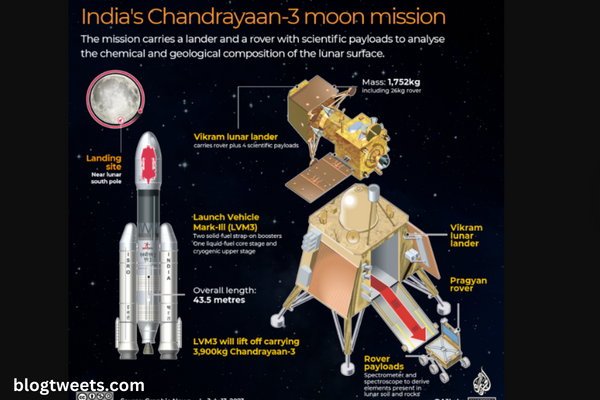The Story of “Everything Everywhere All at Once,” This Year’s Oscar Unicorn
The film has taken an unusual path to a possible awards-night sweep.

“Everything Everywhere All at Once” is an outlier in the industry, which makes it all the more appealing to the Academy.
In a parallel universe, “The Fabelmans” is cruising to victory at the 95th Academy Awards, a late-career triumph for Steven Spielberg, who will win Best Picture and Best Director for the first time since “Schindler’s List.” In another branch of the multiverse, “Top Gun: Maverick,” the film that allegedly saved moviegoing after the lockdown, is about to add a statuette to its impressive box-office haul. In an alternate reality, “The Woman King” will usher in a new era of Black-female empowerment in Hollywood if it wins Best Picture, Best Director (Gina Prince-Bythewood), and Best Actress (Viola Davis). And, somewhere in the infinite universe of possibilities, Andrea Riseborough of “To Leslie” is about to clutch her Best Actress award with hot dog fingers.
However, we do not inhabit those universes. We live in a world where “Everything, Everywhere, All at Once” is the clear favourite for Best Picture. The Oscars are always a multiverse story, with the seemingly infinite number of possible winners narrowing as the night progresses. There is still a universe in which “Everything, Everywhere” loses all eleven awards for which it is nominated—but we don’t live in that universe, either. The film has just won four awards from guilds whose members overlap with the Academy’s major branches: the D.G.A.s, the P.G.A.s, the sags, and the W.G.A.s. It appears to have one acting award (Best Supporting Actor, for Ke Huy Quan) and two others (Best Actress, for Michelle Yeoh, and Best Supporting Actress, for Jamie Lee Curtis) in the bag. And its eccentric director duo, known as the Daniels (Kwan and Scheinert), could overtake Spielberg. With the ranked-choice ballot for Best Picture, a film as widely acclaimed as “Everything, Everything” has an even better chance, as it can benefit from second-choice votes as well.

On one level, the rise of “Everything Everywhere” appears improbable. The film premiered a year ago at South by Southwest, an unusual venue for Oscar contenders. It debuted in limited release in late March and has been steadily gaining ground at the box office. It was A24’s highest-grossing film by June. Cate Blanchett in “Tár,” Brendan Fraser in “The Whale,” banshees, Fabelmans, and Black Panther all burst onto the scene in the fall and winter, directing awards speculation in other directions. On the surface, “Everything Everywhere” doesn’t seem like Oscar bait: it’s a sci-fi comedy (two genres that the Academy tends to overlook) about a middle-aged Chinese American woman who runs a laundromat, with a premise that only philosophers and comic-book geeks will understand (verse-jumping? ), and subplots involving talking rocks, an enchanted everything bagel, and butt plugs.
Despite this, “Everything Everywhere” did more than endure—it soars. Why? One simple explanation is that people enjoy the film. “I’ve loved it since it came out,” said one Academy member and award strategist. This Best Picture nominee was drawn to the story of “a woman trying to deal with her life” and noted that the film has a more uplifting ending than many of its competitors: “As we’ve seen in previous years with the Oscars, it’s the film that makes you feel the happiest when you walk out.” The film has the spectacle of a superhero blockbuster and the eccentric style of an indie dramedy, but at its heart, it’s a heartwarming story about a woman finding her purpose, saving her frayed marriage, and reconciling with her lesbian daughter. In comparison, “Tár” is a chillier, more sardonic film that leaves its audience conflicted about its disgraced antiheroine. In that sense, “Everything Everywheretriumph “‘s is similar to “CODA,” another sentimental family story that defeated a colder, more ambiguous film, “The Power of the Dog,” last year.
However, as any Oscar watcher knows, there are numerous external factors that contribute to a statuette. A Best Picture winner must capture the spirit of Hollywood. “None of the other films this year feel that big,” one screenwriter speculated. ” ‘All Quiet on the Western Front’ is a remake that no one saw coming. People didn’t go crazy over ‘The Fabelmans,’ for some reason. So it feels young, hip, and diverse, and no one knows what it’s all about.” However, the film may address deeper anxieties plaguing the industry. When you look at the ten Best Picture nominees, you see a divided Hollywood: blockbuster sequels like “Top Gun: Maverick” and “Avatar: The Way of Water” on one side, indies like “Triangle of Sadness” and “Women Talking” on the other. As Richard Brody has discussed, the types of films that usually thrive during Oscar season have recently fizzled at the box office. People only go to the movies for I.P.-driven tentpoles, particularly those involving superheroes, with the public content to catch everything else on streaming. The mid-budget studio film—adult dramas, rom-coms, and star-studded comedies—has all but vanished. Since “Kramer vs. Kramer,” “Terms of Endearment,” and “The English Patient,” these are the films that have traditionally anchored the Oscars in popular culture. But this year’s unicorn is “Everything, Everywhere,” a defiantly strange non-franchise crowd-pleaser that has grossed more than a hundred million dollars worldwide. It is an outlier in the industry, which makes it all the more appealing to the Academy.
There’s also the campaign. A24, the ultra-hip studio behind “Room,” “Moonlight,” and “Minari,” didn’t go into 2022 expecting “Everything, Everything” to be its awards-season breakthrough. The film was completed on March 13, 2020, on the eve of the pandemic. During the summer of 2021, the company began planning the release date, deciding that it would be best to wait until moviegoers were back in full force. The obvious choice for the world premiere was South by Southwest. “It’s big with a young audience, and screenings there are electric,” one A24 executive said, citing the fact that it was one of the first large in-person events following the Omicron wave. When the film was released in theatres, audiences remained enthralled, returning multiple times. Critics compared it to “The Matrix,” and A24 executives predicted that the film would inspire Halloween costumes by April.
The producers quickly realised they had a winning combination: a movie that audiences loved; a winning ambassador in Michelle Yeoh, who spoke affectingly in interviews about the show-business obstacles she’d overcome as an Asian woman; and an infectious sense of camaraderie among the cast and creative team. But how can the momentum be maintained? “The Whale,” from A24, had a more traditional awards run, premiering at the Venice International Film Festival in September and then moving to Toronto a week later. Yeoh also attended the fall festival circuit, where he received an honorary award in Toronto and a special screening of “Crouching Tiger, Hidden Dragon” in Telluride. “How do you get through that early phase with all the new shiny objects?” asked an A24 executive, recalling the busy fall season. “You begin with Michelle because she is the film.” By October, the New York Times was reporting on its unusual longevity. Like its beleaguered protagonist, the film was a lovable underdog.
When I saw “The Fabelmans” in Toronto, I labelled it as an Oscar front-runner—a dangerous position to be in in September, with months ahead for fatigue to set in. As winter approached, “Everything Everywhere” gained traction at “precursor” awards, demonstrating that Yeoh wasn’t alone in his charm offensive. There was Ke Huy Quan, who spoke about the years following his breakthrough as a child actor in “Indiana Jones and the Temple of Doom,” when he watched his white co-stars get the consistent work that he did not; accepting a Golden Globe award, he thanked Spielberg, his “Temple of Doom” director. There was Jamie Lee Curtis, a quirky and outspoken campaigner who reframed the “nepo baby” debate by expressing pride in her famous parents, Tony Curtis and Janet Leigh. And then there were the Daniels, who were having a hipster-nerd bromance on the red carpet. The top brass at A24, who are not immune to superstition, sat in the same conference-room seating arrangement as on previous Oscar mornings. More nominations were bestowed upon this film than any other this year.
“Everything Everywhere” now had to deal with the F-word—”front-runner”—but it was peaking at the perfect time. Unavoidably, there has been some backlash. “I have yet to find people who tell me they really love it,” one veteran strategist told me, admitting that he is working on a competing film. “When it came out, all I could think was, ‘It’s confusing. It’s draining. It’s a two-and-a-half-hour nonsense fest.’ That’s not going to the movies; that’s homework!” This critic attributed its success to “Asian-representation hectoring,” which was heightened by concerns about violence against Asian Americans during the pandemic. “This is just extremely political,” the consultant continued, describing the likely victory as a way to “show the world that Hollywood isn’t what the rest of the United States has become.”
Aside from racial politics, it’s possible that some older Academy voters haven’t connected with the Marvel-esque elements that younger fans take for granted. If any film could pull an upset, it’s “All Quiet on the Western Front,” a German antiwar film released on Netflix that won a Bafta and has its own aura of timeliness in the midst of the carnage in Ukraine. The Academy, which has become much more global in recent years, nominated “All Quiet” for nine awards, breaking it out of the international-film bubble. However, it is unlikely to outrun “Everything Everywhere,” which feels like a forward-thinking and self-assuring choice. The Academy Awards serve as the industry’s mirror, with the Best Picture winner serving as its preferred reflection. “Everything, Everywhere” is a wild burst of imagination, and world-building is a big part of filmmaking these days, whether it’s the Marvel Cinematic Universe or “Avatar.” Every time Yeoh and his colleagues “verse-jump,” Academy members witness a version of what they do: beam moviegoers into another dimension. The multiverse isn’t just a philosophical concept; it’s also a mode of storytelling that represents cinema’s most powerful contemporary hold on popular culture. All of this fits on a bagel.








